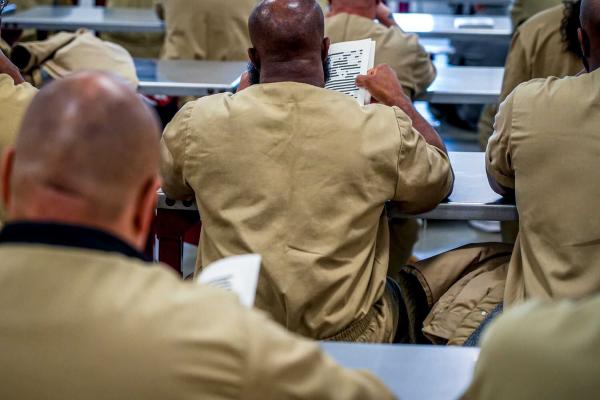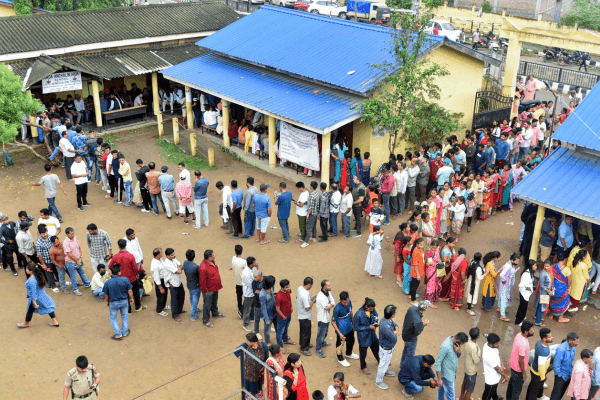The season of Advent holds a special meaning for me because it reminds me of the power of a mother’s love. While I know “Jesus is the reason for the season,” I cannot help but shift my attention to the woman who brought him into the world — and what she had to endure to birth him. I think, too, about the pain she must have felt cradling her son’s broken body when they took him off the cross. I reflect on how special God must have thought Mary was to choose her to bear his son. Given the maternal mortality and morbidity epidemic in our own country, this year’s Advent seems like an appropriate time to reflect on what Mother Mary’s role in the story is and how we can extend our reverence and love for her to women in our society today.
Though the Gospel of Luke is the only place in scripture that mentions Jesus' manger, its imagery is a Christmas decoration staple. As a small child of 3 or 4, what most stood out to me in the nativity story was that Mary had a baby in a stable. Earlier that summer, I had visited a petting zoo on a nursery school trip and, though enjoyable, it was definitely not a place for a new baby. I didn’t understand why no one would take in a woman who clearly needed help; I thought the people at the inn were bad because they didn’t give up a room. I thought about my mom and how it would make me sad if she had been treated like Mary.
For me, Mary became an example of God’s promise of love — that God would raise up the people society deemed unimportant and become powerful voices for liberation. In fact, in Luke 1:46-55, we hear Mary — the seemingly timid teenager who said yes to God’s plan — raise her voice as she visits Elizabeth, who was pregnant with John the Baptist. In the Magnificat, or song of praise, Mary claims her place in the story and reminds us of God’s plan to dethrone the powerful and lift up the lowly:
My soul magnifies the Lord,
and my spirit rejoices in God my Savior,
for he has looked with favor on the lowliness of his servant.
Surely, from now on all generations will call me blessed;
for the Mighty One has done great things for me,
and holy is his name.
His mercy is for those who fear him
from generation to generation.
He has shown strength with his arm;
he has scattered the proud in the thoughts of their hearts.
He has brought down the powerful from their thrones,
and lifted up the lowly;
he has filled the hungry with good things,
and sent the rich away empty.
He has helped his servant Israel,
in remembrance of his mercy,
according to the promise he made to our ancestors,
to Abraham and to his descendants forever.
Growing up with my mom and brother gave me a deep appreciation for how much motherhood requires from a woman — and how beautiful it could be when there is love. I had a front row seat to watching one parent juggle two children and adult responsibilities, doing her best in spite of it all. I knew my mom worked hard to take care of us, and I know I would not be where I am today without her love, support, and strength. As I’ve gotten older, my respect for my mother has only increased, especially as the weight and expense of adulthood has crept in. Each new adult milestone brought the same thought: “How did my mom do all this and take care of two kids on her own?” Of course, she also had a support system of family members and close friends. That support meant my mom could go to the petting zoo with me and take me to museums on weekends and make sure I had a nutritious diet. It taught me that mothers thrive when they have the things they need — and we should insist on policies that support them.
As a Catholic, the Mother of God has been an important part of my journey in understanding my Christian discipleship. Growing up, I came to believe that Mary was the way to Jesus; as God’s mother, she affirms our fundamental belief in Jesus as Christ. Mary had a unique perspective on Jesus and his life, a perspective that helps us better understand and get closer to Jesus. I also learned about the depth of Mary’s love for Jesus: Her first instinct as a mother was to swaddle her baby and the imagery of the pietà shows her tenderly cradling her son’s body after he passed. It takes an immense amount of strength to sit next to a loved one and watch them pass on, something too many of us have experienced throughout the pandemic.
But for all the love and respect we, as Christians, claim to have for Mary, the systems that support women like her are dangerously insufficient. Can we really claim to love the Marys in our lives if we also don’t seek to improve our maternal health crisis?
In Washington, D.C., the seat of our political power, women in this country are dying and becoming disabled due to pregnancy, labor, and birth at a rate worse than in Syria, a nation embroiled in an ongoing civil war. Women in the United States tend to be primary caregivers for their families and have a greater risk of short- and long-term health impacts as a result.
Despite these injustices, members of Congress are actively debating whether to give women time to care for themselves and their families via the country’s first Paid Family and Medical Leave Program and whether to help mothers lift their families out of poverty through a continued Child Tax Credit expansion. If Congress truly wants to honor the sanctity and dignity of life through all stages, why aren’t more members deeply invested in passing the Build Back Better Act, which would provide much-needed aid to all the Marys they claim to represent?
If we want to truly celebrate motherhood in this country — and not just the concept of childbirth — we would ensure access to comprehensive care at community health centers that include birthing. Parents and children would receive care and support throughout the first years of life by a well-funded and well-trained perinatal and child health workforce. Mothers would feel secure in knowing that their community has adequate resources to support healthy child development; they would know their children could thrive.
Shouldn’t we want to create the kind of society that would have supported and protected and honored Mary if she was living today, a society where birthing and motherhood are safe? If we claim to revere Mary — and all the Marys in our lives — the obvious next step is to pass the Build Back Better Act as a show of our devotion and gratitude for a mother’s love.
Got something to say about what you're reading? We value your feedback!








